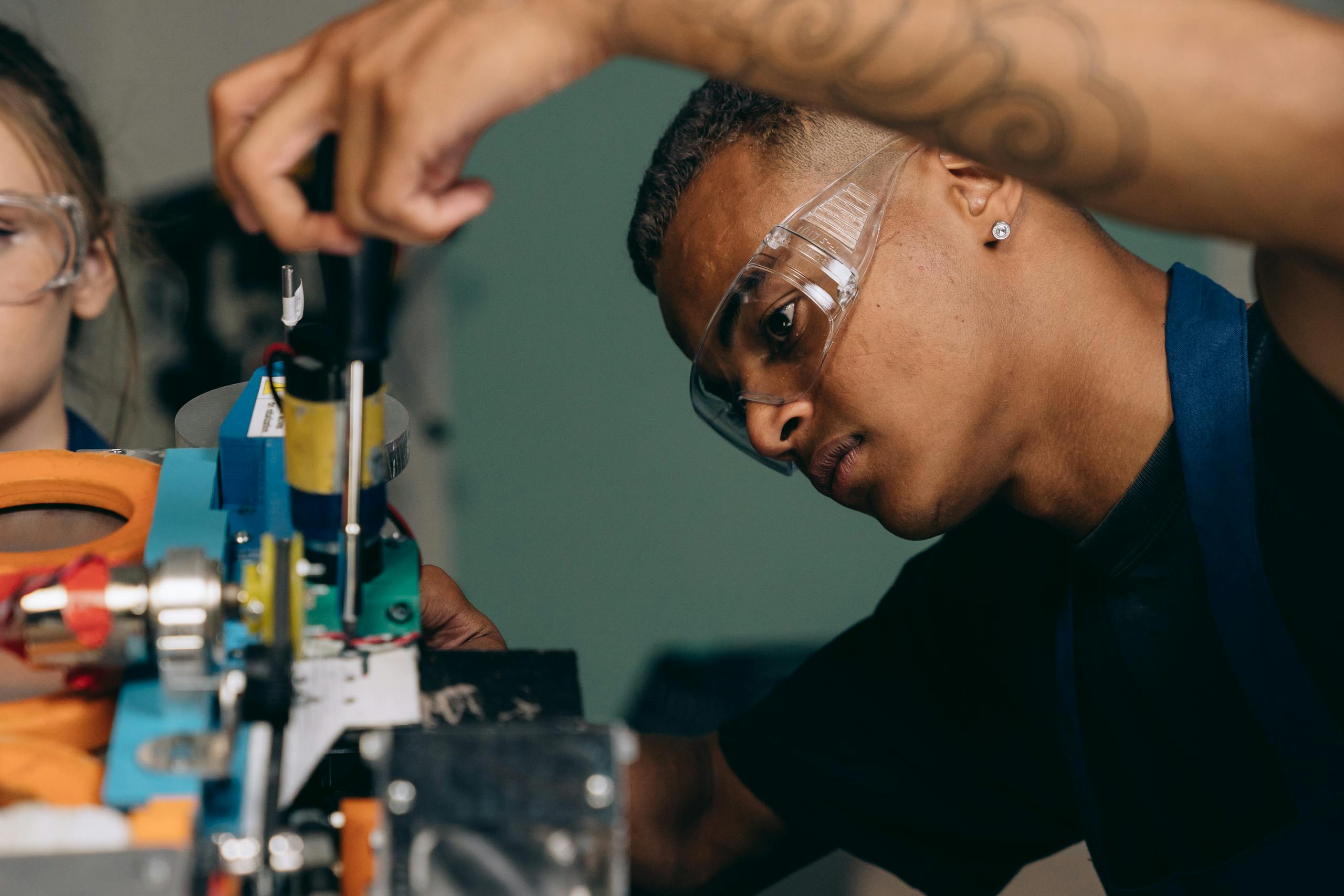7 Golden Tips for Electronics Engineering Students to Achieve Academic Excellence 🤖
Electronics engineering is one of the most fascinating yet challenging fields in the world of technology and innovation. Students entering this realm often find themselves juggling complex circuit theories, signal processing equations, microcontrollers, and practical lab sessions. It’s no secret—excelling in electronics engineering requires not just intelligence, but strategy, consistency, and smart work. With the right mindset and habits, even the most difficult courses can become manageable and rewarding.
In this guide, we’ll dive deep into golden tips specifically designed to help electronics engineering students achieve academic excellence. Whether you’re a first-year student trying to find your footing or a senior gearing up for your final year project, these tips will help you master the technical content, boost your GPA, and stay ahead of the curve. We’ll also provide helpful resources, time-management strategies, and tech tools that can transform your study routine. So, let’s decode the formula for engineering success—step by step. 🤖
1. Master the Basics First
Before you jump into advanced topics like digital signal processing or embedded systems, make sure your foundation in physics, basic electronics, and mathematics is rock solid. Understanding Ohm’s Law, Kirchhoff’s Laws, Boolean algebra, and differential equations will make complex subjects easier to digest.
You can revisit these topics with free online courses from Khan Academy or MIT OpenCourseWare. These platforms break down abstract concepts into digestible videos and exercises.
2. Get Hands-On with Hardware Projects
Theory is important, but nothing beats hands-on experience. Try building simple projects using Arduino, Raspberry Pi, or even breadboards. This helps you understand real-world applications and strengthens your troubleshooting skills—an essential trait for any future engineer.
You can find beginner project ideas on Instructables or advanced tutorials on All About Circuits.
3. Use Simulators Before the Lab
Before diving into physical labs, practice your circuit designs on simulation software. Tools like Tinkercad, Falstad Simulator, or Multisim allow you to test ideas without burning a resistor or blowing a capacitor.
Simulation helps you identify mistakes early, test different scenarios, and feel more confident when working with real components.
4. Join Study Groups and Competitions
Studying in groups can clarify concepts that are otherwise difficult when studied alone. Exchange knowledge, solve assignments together, and prepare for exams as a team. Even better—join engineering competitions like hackathons, robotics tournaments, or circuit design challenges.
These competitions not only enhance your skills but also make your CV more attractive. Platforms like Devpost and IEEE list engineering events regularly.
5. Develop Software Skills Too
Modern electronics engineering is incomplete without coding. Learn languages such as Python, C/C++, and MATLAB. They are widely used for data analysis, signal processing, and controlling microcontrollers.
Use platforms like FreeCodeCamp or Codecademy to get started. You don’t need to be an expert, but being comfortable with programming will boost your problem-solving abilities.
6. Stay Updated with Trends and Journals
Electronics engineering is evolving every day with breakthroughs in AI hardware, quantum electronics, and energy-efficient designs. Subscribe to newsletters or journals like IEEE Spectrum and EE Times to stay informed.
Understanding trends will help you choose research topics, project ideas, and even career paths that are future-proof and impactful.
7. Use Smart Note-Taking and Time Tools
Use apps like Notion, Evernote, or Obsidian to organize your lecture notes, lab records, and project ideas efficiently. These tools let you link topics, set reminders, and even collaborate with classmates.
Also, manage your study time using the Pomodoro Technique with tools like Pomofocus or Forest App to stay consistent and avoid burnout.
8. Seek Mentorship and Internships Early
Finding a mentor—either a professor or senior student—can fast-track your understanding of both academic and career paths. Don’t wait until your final year to explore internships; start early, even in your second year.
Websites like Internshala or LinkedIn regularly post internships suitable for engineering students. This real-world exposure bridges the gap between theory and practice.
9. Don’t Ignore Soft Skills
Communication, teamwork, presentation skills—these are just as important as your technical abilities. Participate in seminars, give tech talks, or join student clubs to build confidence and leadership.
Try taking a short course on soft skills via Coursera or edX—many of them offer free certification options.
10. Build a Portfolio and Online Presence
Document your projects on GitHub, write technical blogs, or even post short videos explaining concepts. Having an online portfolio boosts your chances of landing internships, jobs, or research roles.
How to Succeed in Electronics Engineering
Success in electronics engineering depends on a balanced approach to theory, practice, and personal discipline. Start by creating a realistic study plan that prioritizes understanding over memorization. Instead of passively reading textbooks, engage actively—solve problems, create mind maps, and explain concepts to others. Embrace curiosity by asking “how” and “why” as you study circuits or systems.
Use every opportunity for hands-on learning, whether through lab experiments, side projects, or internships. Don’t hesitate to reach out to professors or peers for help—collaborative learning often leads to deeper understanding. Lastly, stay updated with technological trends and consider joining engineering communities to exchange knowledge and stay inspired. With consistency, curiosity, and a can-do mindset, success in electronics is well within your reach. 💡
Conclusion
Academic success in electronics engineering isn’t about being the smartest person in the room—it’s about being consistent, resourceful, and proactive. From mastering the basics to building projects, networking, and improving soft skills, each small habit contributes to your long-term success. Embrace the challenges, stay curious, and never stop learning. Your future as a brilliant engineer is built one circuit at a time. 🔧📚
Ready to level up your learning journey? Join our Seif WhatsApp community and stay updated on more tech tips, learning resources, and student success hacks!


